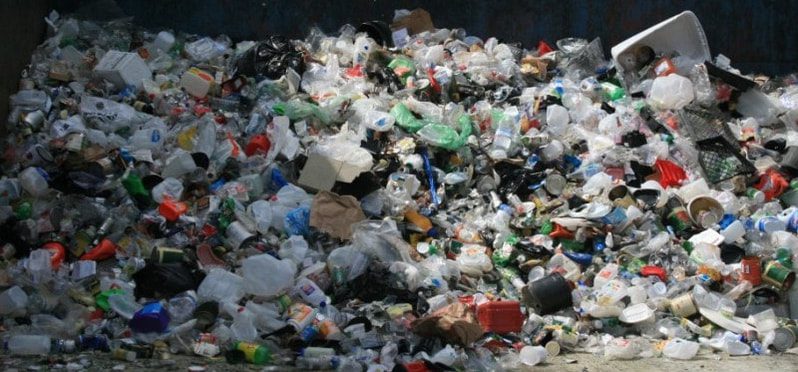
For the past three years (and slightly less so in the many decades before), there’s been a global recycling crisis. It kicked off in earnest in January 2018 when China, long the world’s dumping ground for recycling, enacted its “National Sword” policy, banning the import of most plastics and other materials headed for its recycling processors, which had handled nearly half of the world’s recyclable waste for the past quarter century. The move was an effort to halt a deluge of soiled and contaminated materials that was overwhelming Chinese processing facilities.
In the years since that move, which essentially shut down what had been the industry’s biggest market, China’s plastics imports plummeted massively, leading to a major global shift in where and how materials tossed in the recycling bin are being processed. That seismic shift left waste management companies throughout the United States and beyond searching for ways to dispose of all that recycling, with some ending up in landfills, incinerators, or likely littering the environment as rising costs to haul away recyclable materials increasingly render the practice unprofitable.
Three-plus years on, where do things stand?
Not much better. The vast majority of the burden to reduce plastic and non-reusable waste has been on consumers, and the businesses that rely on cost-effective packaging. There has been a ton of energy devoted to creating pilot programs like the CommUnity Cup, an innovative, community-centered pilot program born right here in Mill Valley that seeks to replace single-use café cups with a lending system of reusable cups for Mill Valley’ans and others to enjoy.
But should small businesses like Mill Valley’s restaurants, grocery stores and cafes really be the primary driver of reducing plastic consumption when plastics production has increased substantially, with North American conglomerates like Dow Chemical and the ExxonMobil chemical division accounting for roughly 20 percent of global plastic materials production in 2019?
No.
But there are some good signs on the horizon, namely in Maine, which became the first state in the nation this week to require companies that create consumer packaging to pay for the costs of recycling it. Gov. Janet Mills (D) signed a bill Tuesday establishing an “extended producer responsibility” (ERP) program, which will charge large packaging producers for collecting and recycling cardboard boxes, plastic containers and other packaging materials, as well as for disposing of nonrecyclable packaging. The income generated will be used to support recycling efforts in local communities that have long relied on taxpayer dollars.
Sarah Nichols, director of the Sustainable Maine Program at the Natural Resources Council of Maine, told the Washington Post that many other states will soon follow suit. “We are the first domino to fall,” she said.
Will California be one of them, reducing the burden on communities like Mill Valley that are so dedicated to doing the right thing but lacking the resources or ability to make more than a small dent in this massive problem?
Things are looking good.
Introduced in February, California Assembly Bill 842, officially titled the California Circular Economy and Plastic Pollution Reduction Act, contains some elements of previous extended producer responsibility (EPR) proposals and some new components, such as a 75% post-consumer-recycled-content mandate by 2035. EPR is a policy that shifts the financial costs of recycling onto product manufacturers.
The bill establishes a “comprehensive stewardship program” and provides “a disincentive for continued production of plastics that are not recyclable in California,” according to a fact sheet summary of the legislation. The bill also establishes methods of incentivizing design for recyclability and source reduction. Beginning in 2023, producers would begin paying per-unit fees for packaging, with the amount assessed based on the recyclability of that product. Hard-to-recycle packaging would be assessed a 1-cent fee for each item, and non-recyclable packaging would see a 2-cent fee.
The fee revenue would go toward market development efforts, among other projects. The bill incentivizes source reduction by offering credits for producers to offset the costs they pay into the stewardship organization.
“Fossil fuel companies need to take responsibility,” Nichols said, “not just tell people to drive electric cars or turn off the lights.”
